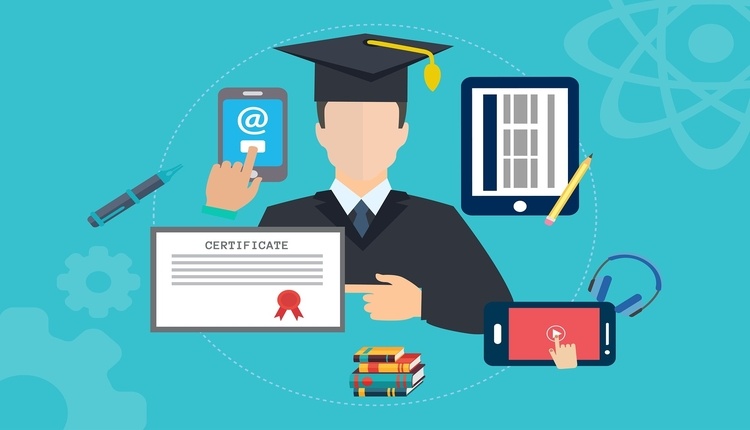How E-learning Courses Are Important for Research and Publishing

When I started my Ph.D., I knew I would be introduced to many new things. I knew the courses would be challenging and that I would have to do a lot of research and writing. However, I did not have much knowledge about one very important topic: academic publishing. I knew I could get advice from my professors and advisors. However, I decided to do some research on my own because I knew this would give me an edge as I continue my studies. This is how I came across the e-learning platforms and wondered how they work.
What is E-learning?
First, it is important to learn about the structure of E-learning courses. I found that they use Learning Management Systems (LMS) to deliver learning materials in a range of formats, including documents and videos. In addition, an LMS provides an e-learning platform for webinars and communication between instructors and students.
I also found information about the history of E-learning. E-learning courses gained importance with the advent of the internet in the 1990s. This is when schools began to deliver instruction via online courses. This was referred to as distance learning, which helped bring education to a wider audience.
Advantages and Disadvantages of E-learning Courses
I then researched the benefits of E-learning courses. First, an E-learning course can accommodate to any schedule. These courses can be taken by anyone at almost any time. This is especially beneficial for students and professionals who have a lot of other responsibilities.
Also, I can access the course an unlimited number of times. This is a great benefit as it gives me the ability to learn and re-learn important ideas and concepts. There is no stress about missing a lecture and having to make up for it later. Lastly, the quick delivery methods of an E-learning course can decrease my learning time by 25-60% compared to a traditional classroom. This puts me in control of my pace of learning.
There are also some disadvantages to E-learning. I needed to learn about these disadvantages in order to overcome them more effectively. One is the divide between learning the theory versus learning practical skills. This means it could be more difficult using the knowledge and skills learned in an E-learning in real-life situations.
Another disadvantage is the isolation of learning on my own. The social benefits of learning as part of a group are sometimes as important as gaining knowledge. Learning on one’s own means that these social benefits are not acquired. Fortunately, progress has been made in providing students and professors more avenues for communication, including social media, video chats, and discussion groups.
Using E-learning Courses for the Publication Process
Ph.D. students always hear about how important it is to get published. But, sometimes figuring out this process can be difficult. So, I needed to do some in-depth research. E-learning courses that discuss the publication process were a great help. I was able to see each step of the process, while also learning important information.
One example of an E-learning course that helped me is titled “Choosing the Right Journal for Your Research”. This course clearly and thoroughly outlined each step of the publication process. The sections covered important aspects of academic publishing, such as understanding publishing industry practices, how to evaluate the quality of a journal, and identifying the appropriate audience for your work.
Another resource I found offers a comprehensive guide on academic writing and the publication process. This does a great job linking these important topics. It takes you through the necessary steps that you need to become a better writer and to get your work published in academic journals.
What are you experiences with learning about the publication process? What resources have been helpful in this process? Please let us know in the comments section below.









